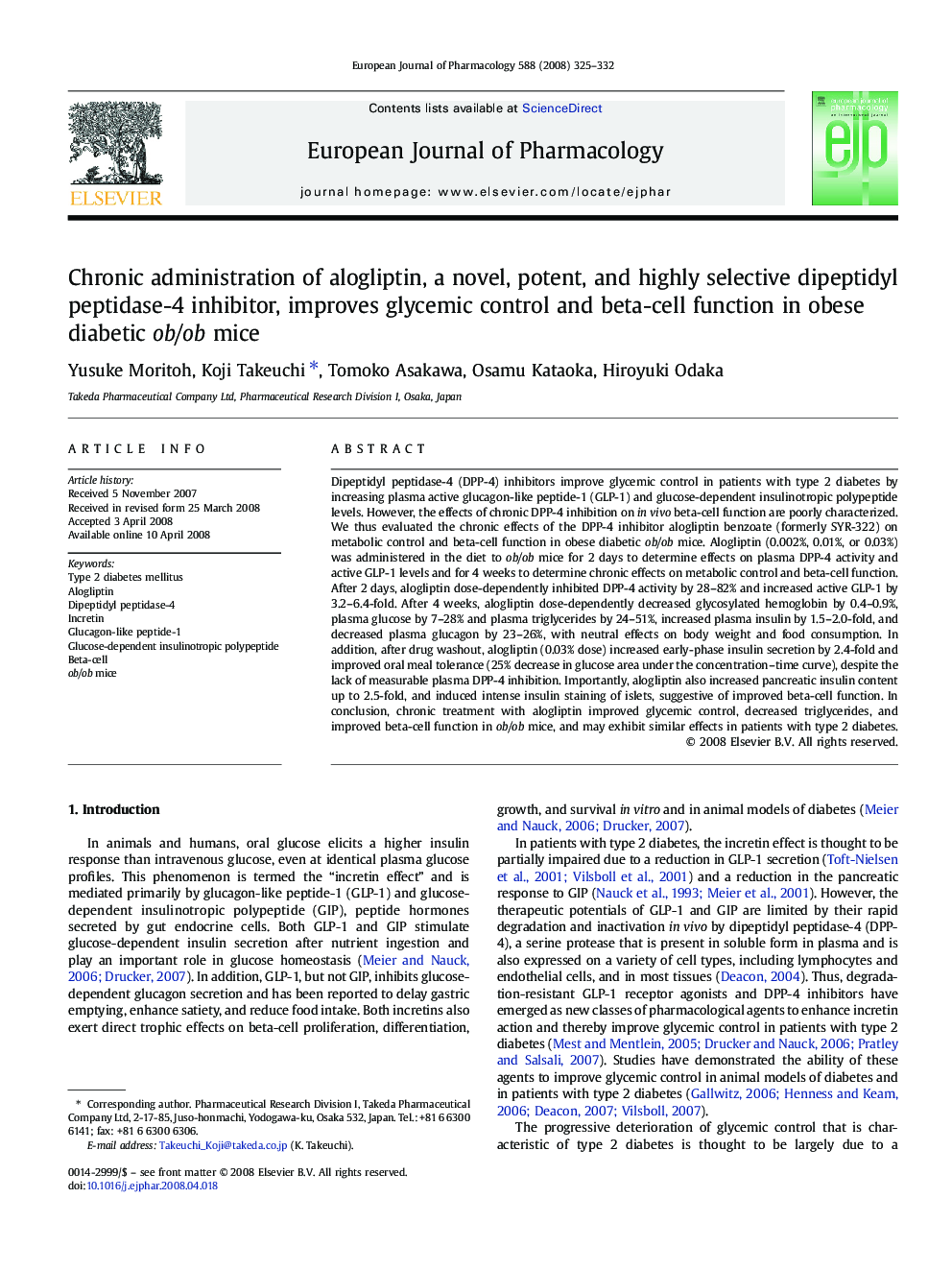| کد مقاله | کد نشریه | سال انتشار | مقاله انگلیسی | نسخه تمام متن |
|---|---|---|---|---|
| 2535200 | 1559108 | 2008 | 8 صفحه PDF | دانلود رایگان |

Dipeptidyl peptidase-4 (DPP-4) inhibitors improve glycemic control in patients with type 2 diabetes by increasing plasma active glucagon-like peptide-1 (GLP-1) and glucose-dependent insulinotropic polypeptide levels. However, the effects of chronic DPP-4 inhibition on in vivo beta-cell function are poorly characterized. We thus evaluated the chronic effects of the DPP-4 inhibitor alogliptin benzoate (formerly SYR-322) on metabolic control and beta-cell function in obese diabetic ob/ob mice. Alogliptin (0.002%, 0.01%, or 0.03%) was administered in the diet to ob/ob mice for 2 days to determine effects on plasma DPP-4 activity and active GLP-1 levels and for 4 weeks to determine chronic effects on metabolic control and beta-cell function. After 2 days, alogliptin dose-dependently inhibited DPP-4 activity by 28–82% and increased active GLP-1 by 3.2–6.4-fold. After 4 weeks, alogliptin dose-dependently decreased glycosylated hemoglobin by 0.4–0.9%, plasma glucose by 7–28% and plasma triglycerides by 24–51%, increased plasma insulin by 1.5–2.0-fold, and decreased plasma glucagon by 23–26%, with neutral effects on body weight and food consumption. In addition, after drug washout, alogliptin (0.03% dose) increased early-phase insulin secretion by 2.4-fold and improved oral meal tolerance (25% decrease in glucose area under the concentration–time curve), despite the lack of measurable plasma DPP-4 inhibition. Importantly, alogliptin also increased pancreatic insulin content up to 2.5-fold, and induced intense insulin staining of islets, suggestive of improved beta-cell function. In conclusion, chronic treatment with alogliptin improved glycemic control, decreased triglycerides, and improved beta-cell function in ob/ob mice, and may exhibit similar effects in patients with type 2 diabetes.
Journal: European Journal of Pharmacology - Volume 588, Issues 2–3, 7 July 2008, Pages 325–332